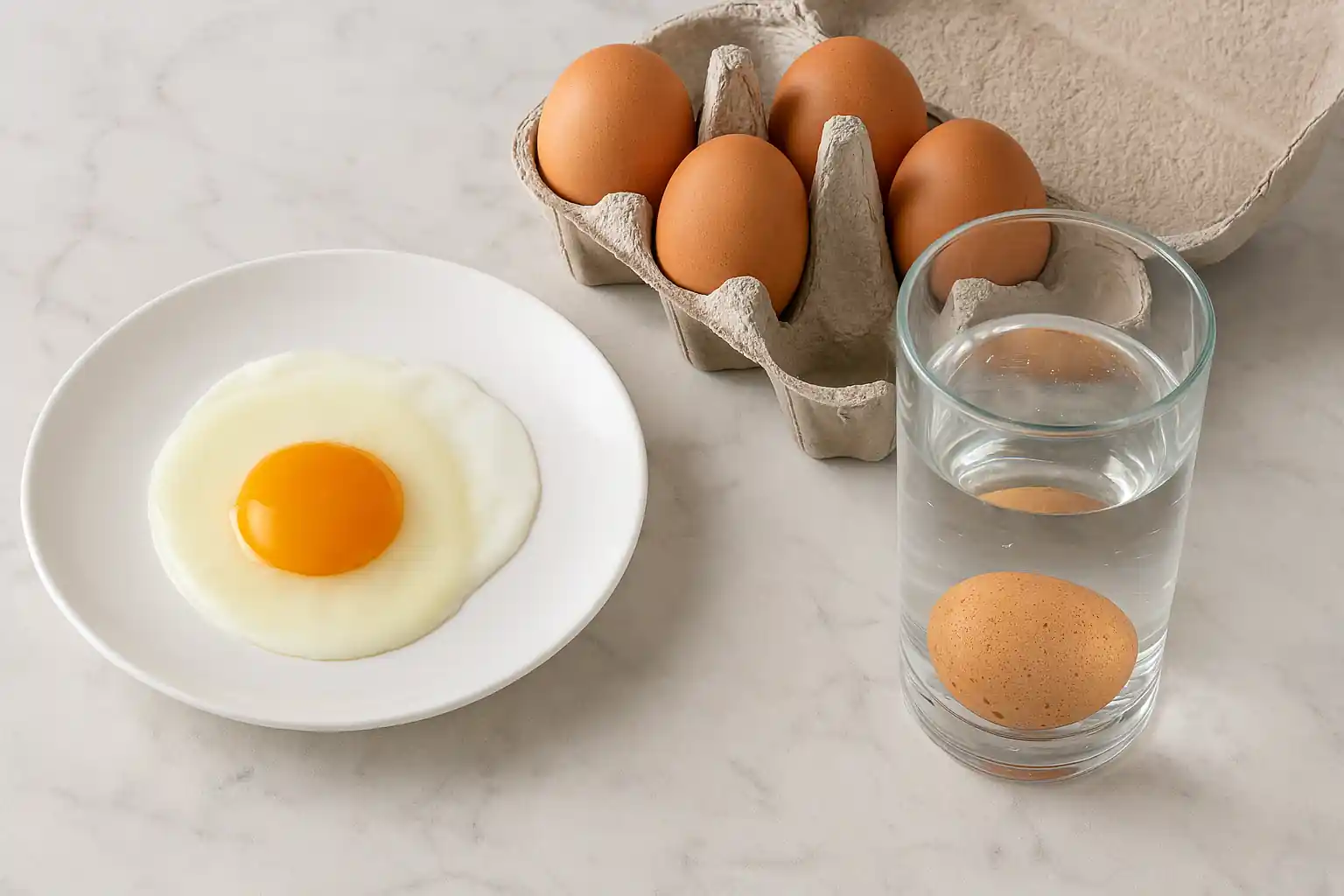Tell If Eggs Go Bad: The Complete Guide to Egg Freshness and Safety
Eggs are one of the most versatile and nutritious foods you can keep in your kitchen. From scrambled eggs in the morning to baking cakes and desserts, they are an essential ingredient in countless recipes. However, like any food, eggs don’t last forever, and it’s important to know how to tell if eggs go bad. Eating a rotten egg can not only ruin the taste of your meal but may also pose health risks. This comprehensive guide will help you understand how to tell if your eggs are bad, how long eggs last, the science behind egg aging, and practical tests like the float test to check an egg’s freshness.
We’ll explore everything from understanding the taste of home methods to professional insights so you can confidently check whether your eggs are good or bad.
How to Tell If Eggs Are Fresh or Bad
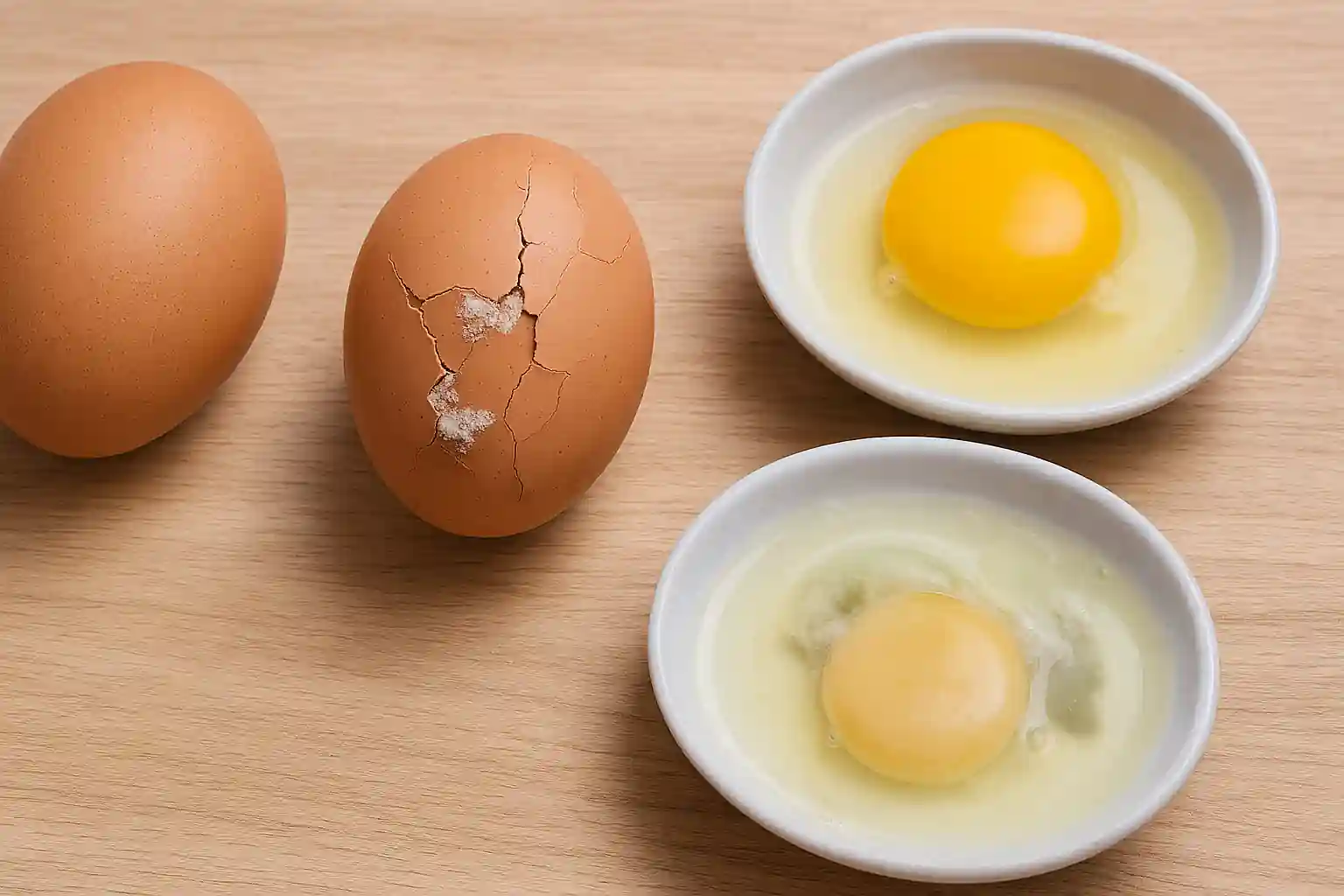
If you’re not sure how to tell if an egg is still good, there are several reliable methods you can use at home. Fresh eggs are usually safe to eat, while a bad egg should always be discarded. Here are the most effective ways to check:
Visual Inspection of the Egg Shell
The egg shell itself provides useful clues. If you see cracks, discoloration, or powdery mold, it may indicate bacterial contamination. A cracked egg should not be consumed because bacteria can enter through the break. Since eggs are porous, a damaged shell increases the risk of spoilage.
Give It a Good Sniff
A rotten egg has a very distinct sulfur smell that’s impossible to miss. If you crack the egg open and notice a foul odor, discard it immediately. A fresh egg should not smell bad at all.
Check the Egg White and Yolk
When you crack open an egg onto a clean plate, look closely at the egg white and yolk. A fresh egg will have a firm yolk that stands tall and a thick egg white. If the yolk is flat, watery, or spreads too much, the egg is older. While an old egg might still be safe to eat, a rotten egg will show cloudy whites, strange colors, or signs of mold.
The Float Test for Egg Freshness
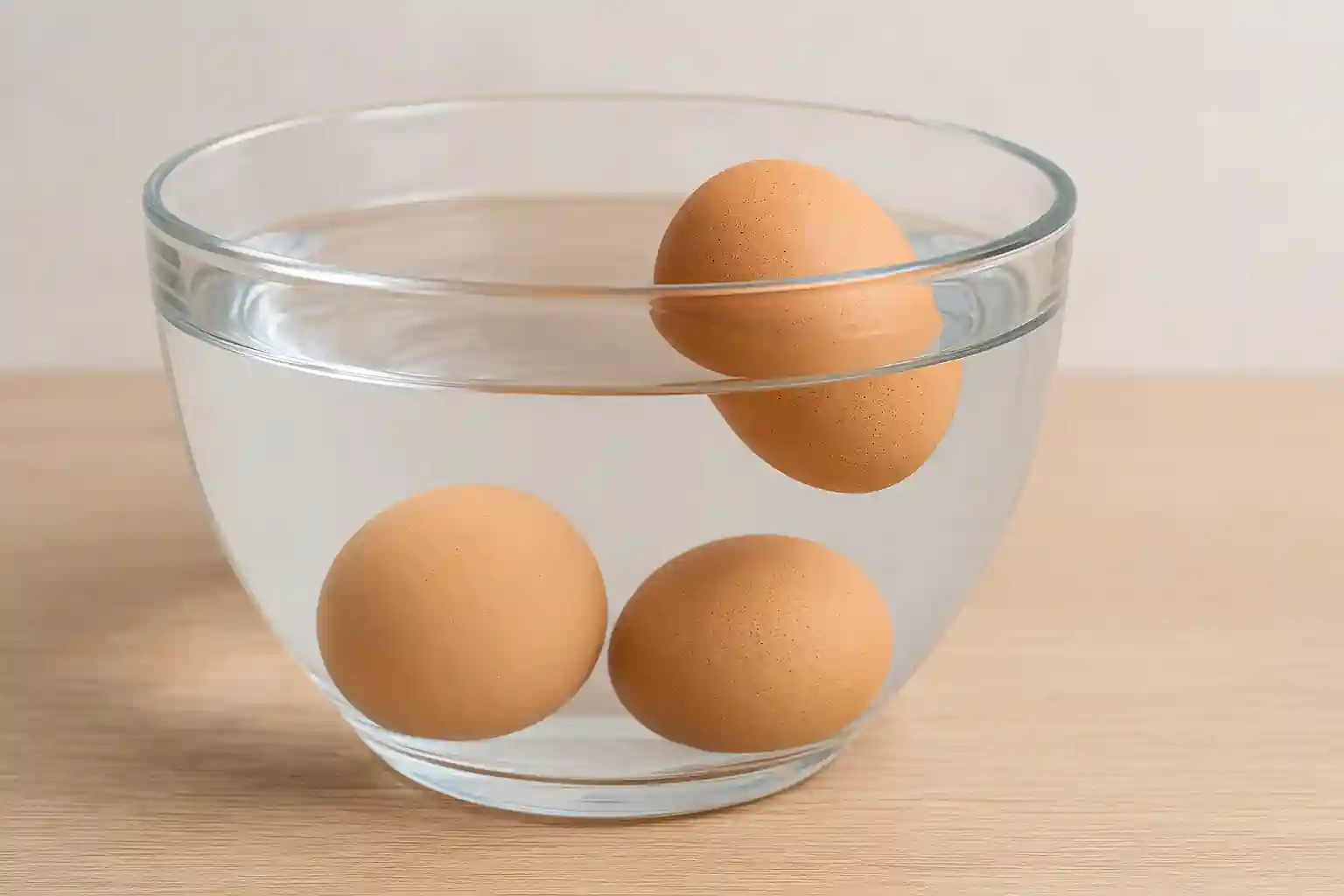
One of the most popular home methods to tell if eggs are bad is the float test. It’s a simple way to determine if your egg is bad or still good to use.
How the Float Test Works
Eggs naturally contain a small air cell inside the shell. As the egg ages, the air sac grows larger. This change in buoyancy helps us test egg freshness.
-
Fill a bowl with cold water – A large container or bowl of water works best.
-
Place the egg gently in the bowl.
-
Observe the egg’s position:
-
If the egg sinks to the bottom and lays flat, it’s a fresh egg.
-
If the egg stands upright at the end of the egg, it is a couple of weeks old but still fine to eat.
-
If the egg floats to the top, it has likely gone bad and should be discarded.
-
Why Floating Eggs Indicate Age
As moisture evaporates through the porous shell, the air sac expands, causing floating eggs. This doesn’t always mean the egg has gone bad, but it does suggest it’s much older. If an egg floats to the top, always crack the egg onto a clean plate to confirm before using.
How Long Do Eggs Last?
The shelf life of eggs depends on how they’re stored. Whether they are raw eggs, hard-boiled eggs, or free-range eggs, knowing how long eggs last helps avoid waste.
Raw Eggs in the Carton
A carton of eggs usually has a sell-by or expiration date or sometimes a Julian date. Properly refrigerated, raw eggs can last three to five weeks beyond the date on the carton. Many people find that eggs are still good even if they are slightly past the printed date.
Hard-Boiled Eggs
Once you cook hard-boiled eggs, their shelf life shortens significantly. They should be eaten within a week in the refrigerator. Unlike raw eggs, boiled eggs lose their protective coating during cooking, making them more prone to bacterial contamination.
Free-Range Eggs
Fresh free-range eggs may have a slightly longer shelf life, but they should also be kept refrigerated.
Refrigeration and Egg Storage Tips
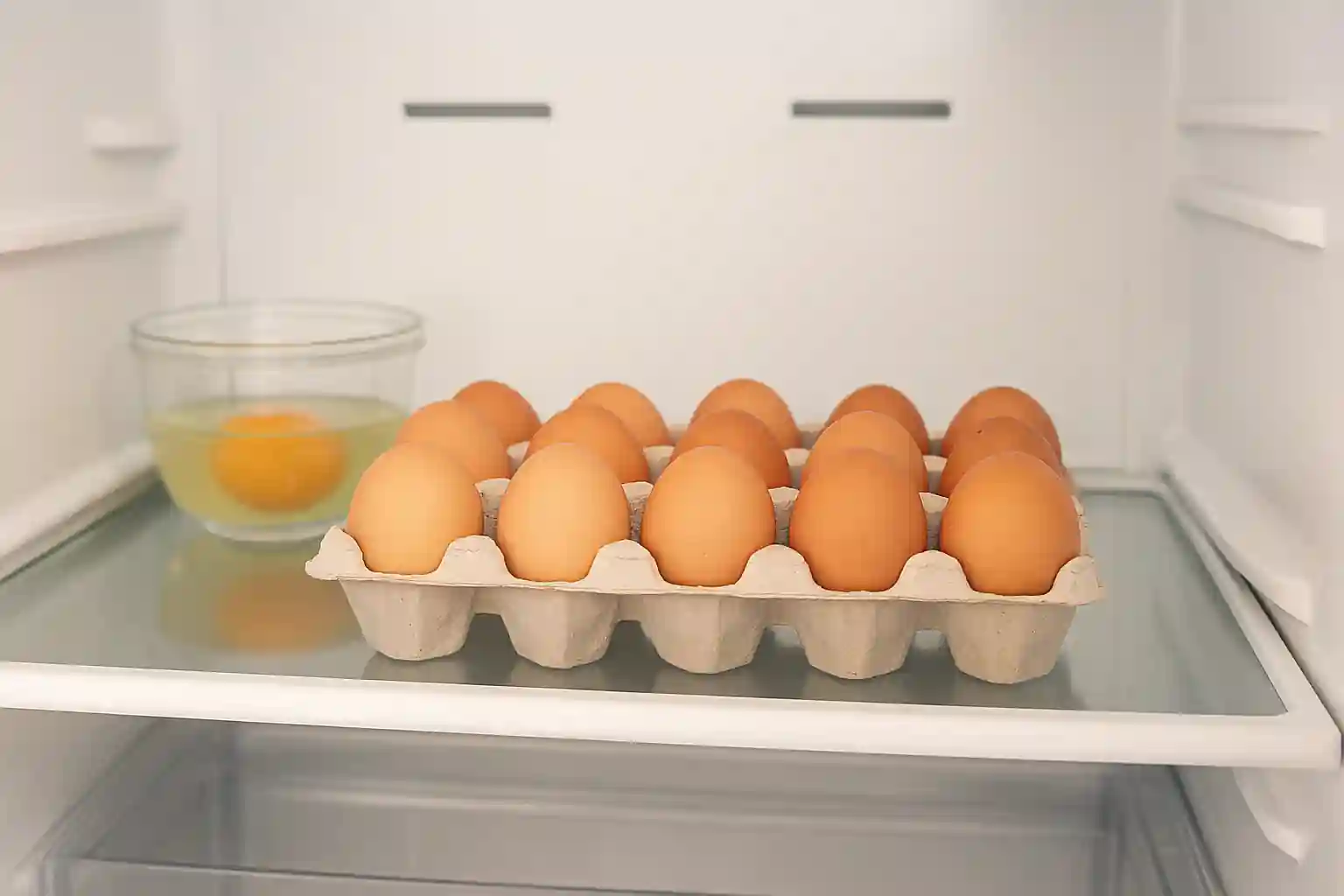
To keep your eggs as fresh as long as possible, proper storage is essential.
Where to Store Eggs in the Fridge
-
Always store eggs in their carton rather than on the fridge door. The carton of eggs helps prevent moisture loss and protects them from absorbing odors.
-
Place them on a shelf toward the back or back of the fridge, where the temperature is most stable.
-
Always refrigerate eggs promptly after purchase.
Storing Cracked or Broken Eggs
A cracked egg should not be stored for long. If you accidentally break an egg, transfer it to a clean container, refrigerate it, and use it within a couple of days.
Keep Eggs Safe to Eat
Remember to keep your eggs cold at all times. If they’ve been left out for several hours, it’s safer to discard them. Proper refrigeration ensures that eggs are safe to eat.
Signs an Egg Has Gone Bad
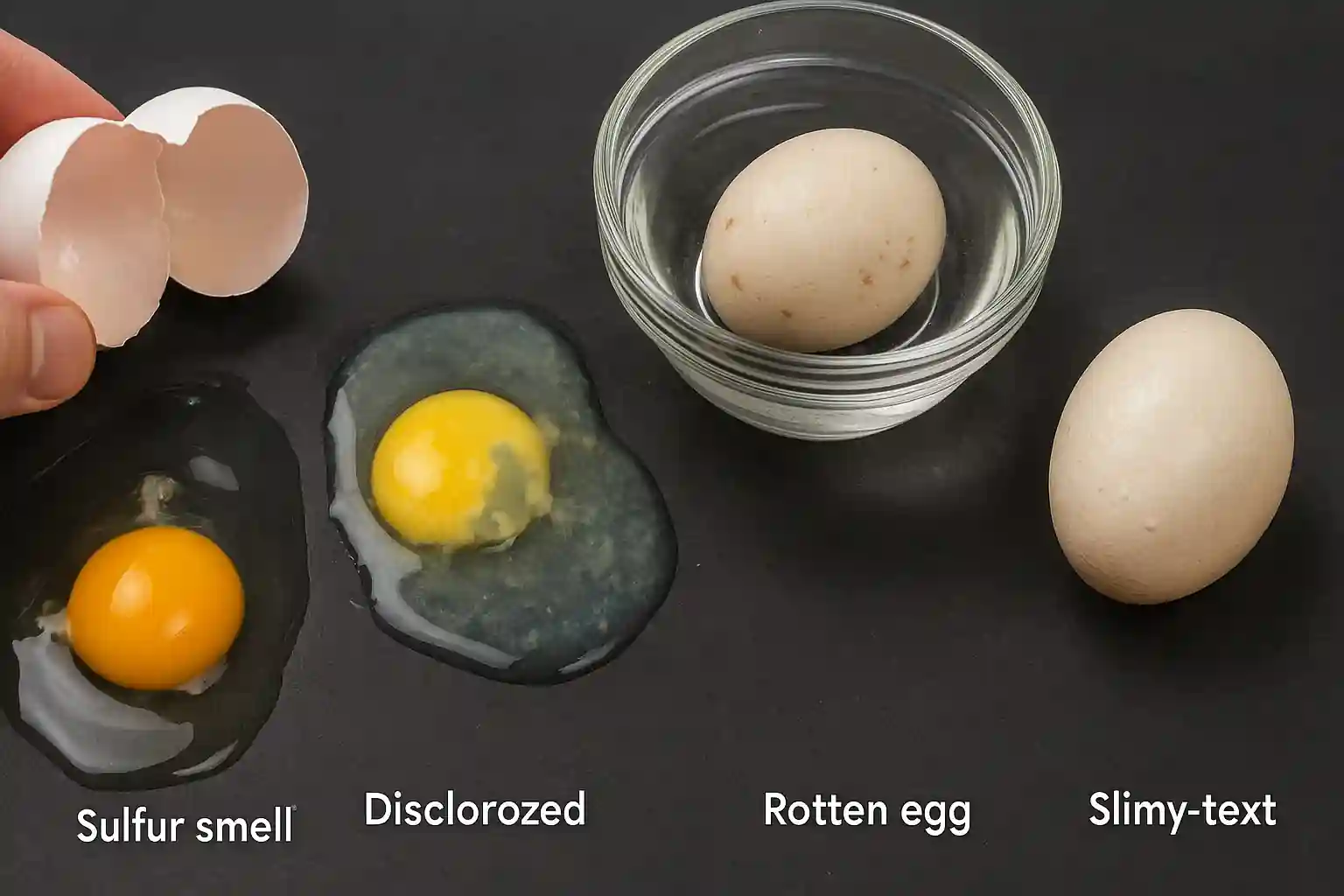
Sometimes you may not be sure if an egg is fine or if the egg has gone bad. Here are the clearest warning signs:
-
A strong sulfur smell when you crack open the egg.
-
Unusual appearance in the egg white or yolk.
-
A rotten egg odor even before cracking.
-
If the egg floats to the top during a water test, it’s often too old.
-
Slimy or chalky texture on the shell.
If you encounter any of these, the egg is not safe to eat.
Common Questions About Egg Freshness
Can You Eat a Bad Egg?
It is never safe to eat a bad egg. Consuming a rotten egg may cause food poisoning with symptoms like nausea, vomiting, and stomach cramps.
Are Older Eggs Always Unsafe?
Not necessarily. An older egg may still be fine to eat as long as it passes the egg freshness test. While the texture may not be ideal for certain recipes, such eggs are still suitable for baking.
Do Eggs Really Expire After the Date on the Carton?
The date on the carton is a guideline, but many eggs are still good for several weeks beyond the expiration date. Always rely on freshness checks like the float test and visual inspection.
Using Eggs in Different Forms

Raw Eggs
Raw eggs are more likely to spoil quickly if not refrigerated. Always check egg freshness before using them in recipes like homemade mayonnaise.
Scrambled Eggs and Cooking
Even if an egg is still good, using older eggs might affect the texture of dishes like scrambled eggs. Fresh eggs will sink and yield better flavor.
Hard-Boiled
Hard-boiled eggs have a shorter shelf life, so plan to consume them quickly.
Egg Freshness Tests You Can Do at Home
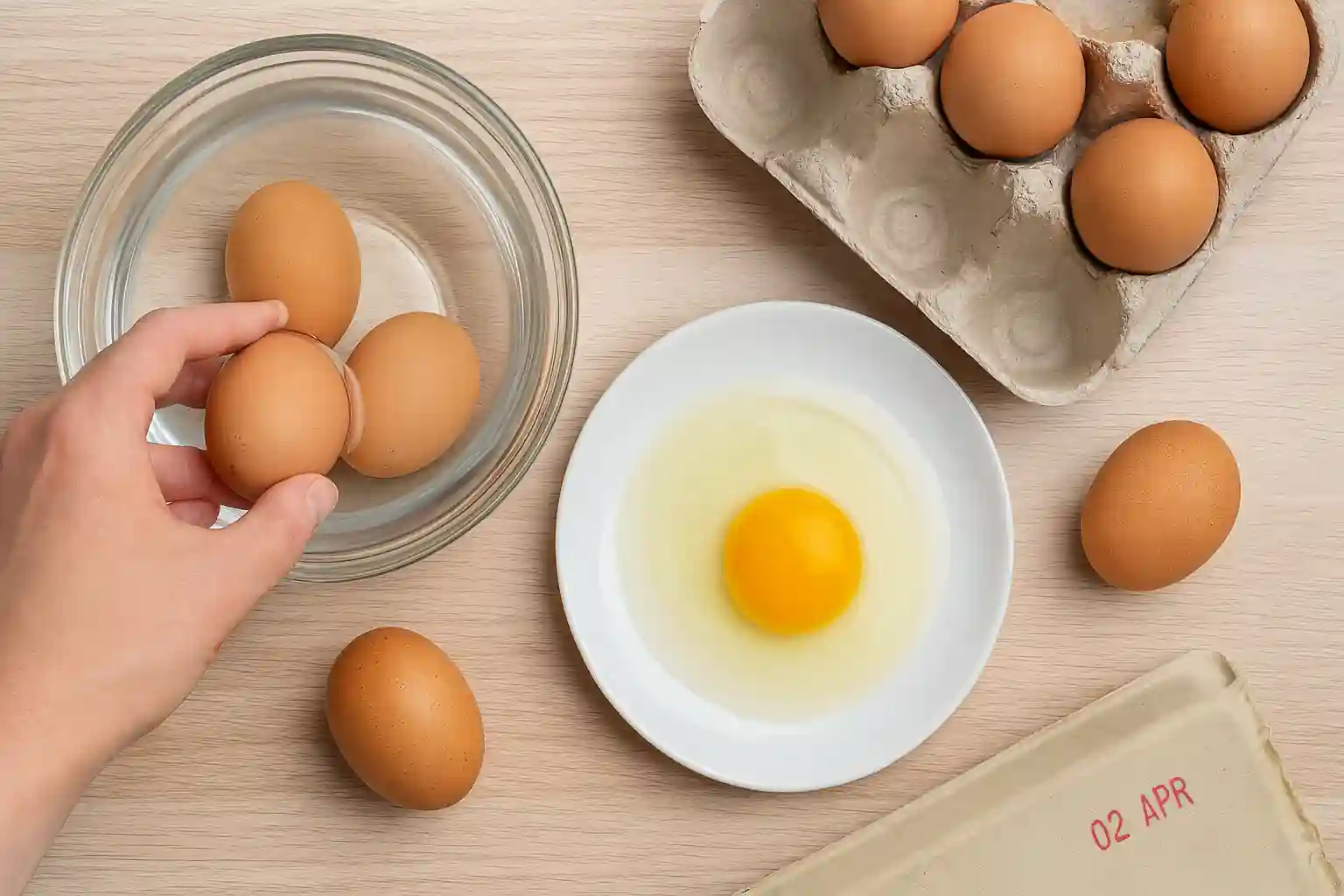
Beyond the float test, here are other ways to tell if eggs are good:
-
Water and place test – Simply fill a bowl with cold water and place your eggs inside. Observe how they behave.
-
Crack the egg onto a clean plate – This allows you to inspect both the egg white and yolk.
-
Give it a good sniff – A quick smell test tells you if the egg is bad.
-
Check the expiration date – Look for the sell-by or expiration date or the Julian date on the egg carton.
How to Keep Eggs Fresh as Long as Possible
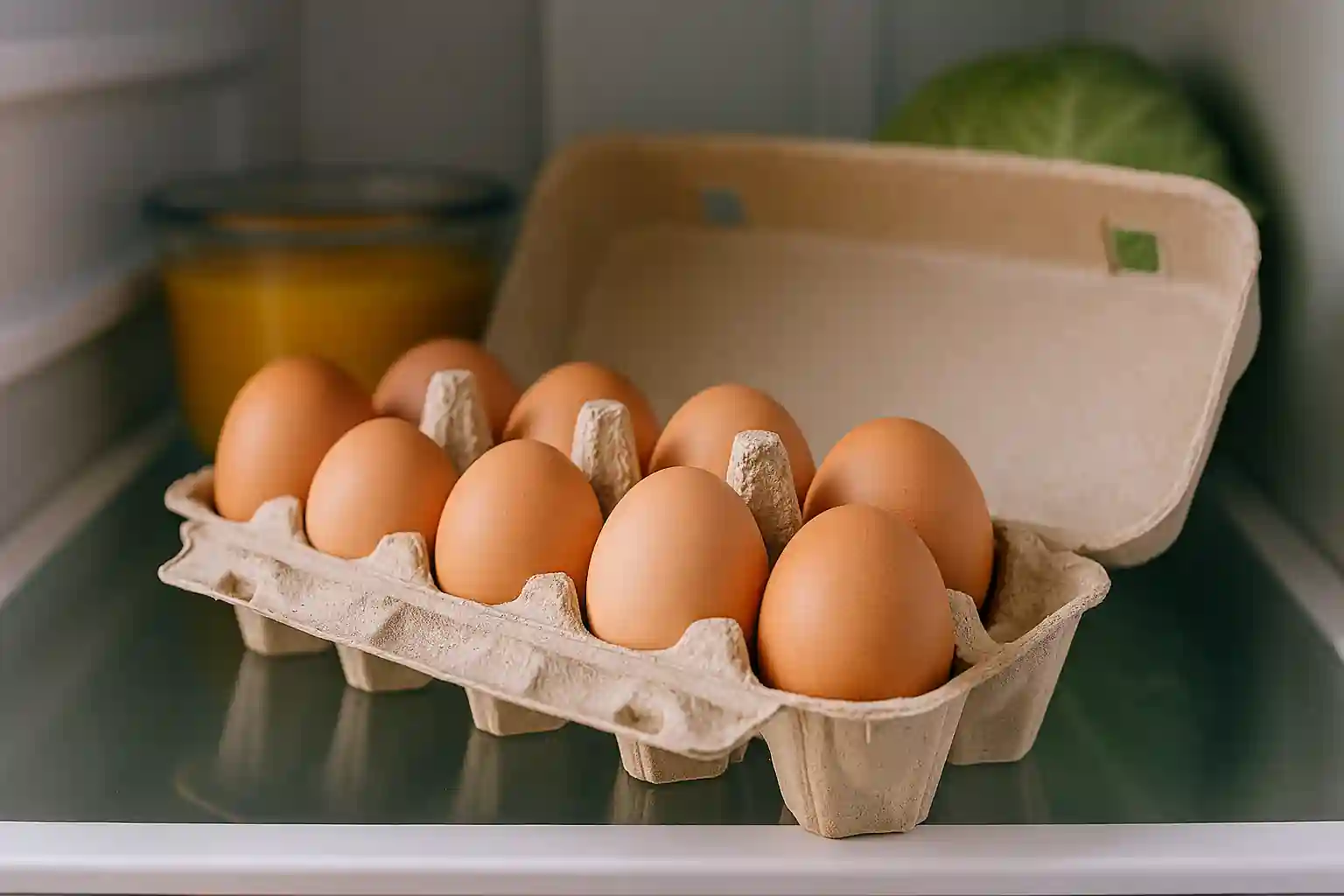
Best Practices to Store Eggs
-
Always refrigerate your eggs.
-
Use a carton of eggs for protection and to prevent odor absorption.
-
Store them in the back of the fridge where it’s coldest.
-
Use older eggs for baking and fresh eggs for dishes where the texture matters.
-
Keep eggs away from strong-smelling foods.
Understanding Egg Aging
The older an egg, the larger the air sac becomes. This affects how it performs in recipes. For example, older eggs are easier to peel when making hard boiled eggs.
Conclusion: Knowing When Eggs Go Bad

Understanding how to tell if eggs are bad is essential for food safety and avoiding waste. From the float test and visual inspection to the sniff test, you now have several reliable ways to check if your eggs are good or bad.
Remember:
-
Fresh eggs will sink in water.
-
Floating eggs suggest age, and a rotten egg should be discarded.
-
Always store eggs properly in a carton and refrigerate them.
-
When in doubt, crack the egg onto a clean plate and inspect it carefully.
By following these guidelines, you can keep your eggs safe to eat, ensure freshness, and enjoy delicious meals made from eggs without worry.

